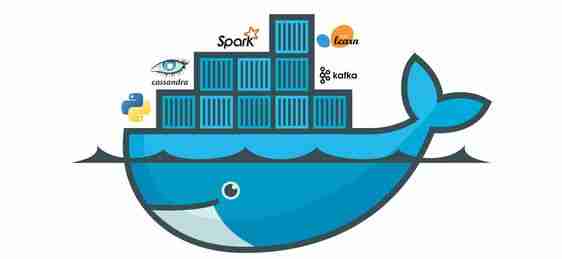
Docker CLI Commands Handbook: A Reference Cheatsheet
Understanding Docker:
Docker is an open-source platform that allows developers to bundle their applications and necessary components into containers. These containers are self-contained environments, housing all elements required for an application to operate, such as code, runtime, libraries, and configurations.

Key Concepts of Docker:
Before diving into Docker's CLI, let's review some essential concepts:
- Images: Templates containing instructions for creating containers, built using Dockerfile.
- Containers: Isolated instances of Docker images running as processes, with their filesystem, network, and process space.
- Registry: Repository for storing and sharing Docker images, with Docker Hub as the official public registry, and the option to set up private registries.
Docker CLI
The Docker CLI (Command Line Interface) is a tool that allows users to interact with Docker containers and manage Docker images and containers from the command line. With the Docker CLI, users can perform various tasks such as:
- Building Docker Images: Users can create Docker images using a Dockerfile and the
docker buildcommand. - Running Containers: Users can start, stop, restart, and remove Docker containers using commands like
docker run,docker stop,docker start, anddocker rm. - Managing Images: Docker CLI enables users to list, pull, push, and remove Docker images using commands like
docker images,docker pull,docker push, anddocker rmi. - Logging and Monitoring: Users can view container logs and monitor container resource usage with commands like
docker logsanddocker stats.
Dockerfile Commands
FROM: Specify the base image for your Docker imageRUN: Execute commands in the Docker image during build timeCOPY: Copy files or directories from the host machine to the Docker imageWORKDIR: Set the working directory for subsequent instructions in the DockerfileEXPOSE: Expose ports from the container to the host machineCMD: Define the default command to execute when the container startsENV: Set environment variables in the Docker imageUSER: Set the user or UID (user identifier) to use when running the Docker imageARG: Define build-time arguments that can be passed to the Docker image
Example:
FROM python:3.9-slim
WORKDIR /app
COPY . /app
RUN pip install --no-cache-dir -r requirements.txt
EXPOSE 80
ENV NAME Application
CMD ["python", "app.py"]
Image Management:
Commands related to handling Docker images, such as building, tagging, and removing images.
List Available Images: List all locally available Docker images
docker imagesBuild Image: Build an image from a Dockerfile.
docker build -t <image_name>:<tag> <path/to/Dockerfile>Remove Image: Remove one or more images.
docker rmi <image>Tag Image: Tag an image to a repository.
docker tag <source_image>:<tag> <target_repository>/<target_image>:<tag>Container Management:
Commands for managing Docker containers, including creating, starting, stopping, and removing containers.
List Running Containers: List all running containers
docker psList All Containers: List all containers (running and stopped)
docker ps -aCreate Container: Create a new container from an image (does not start it)
docker create <image>Start Container: Start a stopped container
docker start <container>Stop Container: Stop a running container
docker stop <container>Remove Container: Remove one or more containers
docker rm <container>Execute Command in Container: Execute a command inside a running container
docker exec -it <container> <command>Fetch Container Logs: Fetch the logs of a container
docker logs <container>Network Management:
Commands for managing Docker networks such as creating, listing, connecting, and disconnecting containers from networks.
List Networks: List all Docker networks
docker network lsInspect Network: Display detailed information about a network
docker network inspect <network_name>Create Network: Create a new Docker network
docker network create <network_name>Connect Container to Network: Connect a container to a network
docker network connect <network_name> <container_name>Disconnect Container from Network: Disconnect a container from a network
docker network disconnect <network_name> <container_name>Remove Network: Remove a Docker network
docker network rm <network_name>Volume Management:
Commands related to Docker volumes, including creating, listing, inspecting, mounting, and removing volumes.
List Volumes: List all Docker volumes
docker volume lsInspect Volume: Display detailed information about a volume
docker volume inspect <volume_name>Create Volume: Create a new Docker volume
docker volume create <volume_name>Mount Volume: Mount a volume to a container
docker run -v <volume_name>:<container_path> <image_name>Remove Volume: Remove a Docker volume
docker volume rm <volume_name>Registry Management:
Commands for interacting with Docker registries, like logging in, logging out, searching, and managing registry authentication.
Login to a Registry: Log in to a Docker registry.
docker login <registry_url>Logout from a Registry: Log out from a Docker registry.
docker logout <registry_url>Search for Images in Registry: Search for Docker images in a registry.
docker search <image_name>Pull Image from Registry: Pull an image from a Docker registry.
docker pull <registry_url>/<image_name>Push Image to Registry: Push an image to a Docker registry.
docker push <local_image_name> <registry_url>/<image_name>System Management:
Commands for managing Docker system resources, including checking system information, managing Docker daemon, and configuring Docker settings.
Display Docker System Information: Display detailed information about the Docker system.
docker system infoPrune Unused Data: Remove unused data like stopped containers, networks not used by any container, and dangling images.
docker system pruneStart Docker Daemon: Start the Docker daemon.
sudo systemctl start dockerCheck Docker Daemon Status: Check the status of the Docker daemon.
sudo systemctl status dockerRestart Docker Daemon: Restart the Docker daemon.
sudo systemctl restart dockerDocker Compose:
Commands specific to Docker Compose, a tool for defining and running multi-container Docker applications.
Start Docker Compose: Start Docker Compose services defined in the docker-compose.yml file.
docker-compose upStart Docker Compose in Detached Mode: Start Docker Compose services in the background.
docker-compose up -dStop Docker Compose: Stop Docker Compose services.
docker-compose downList Docker Compose Services: List Docker Compose services.
docker-compose psConclusion
With this handy docker cheatsheet, you'll navigate Docker easily. Whether you're experienced or new, mastering these commands will make your work smoother and boost productivity. Happy Dockering!
References:
- Docker Documentation:
https://docs.docker.com/ - Docker Hub:
https://hub.docker.com/
